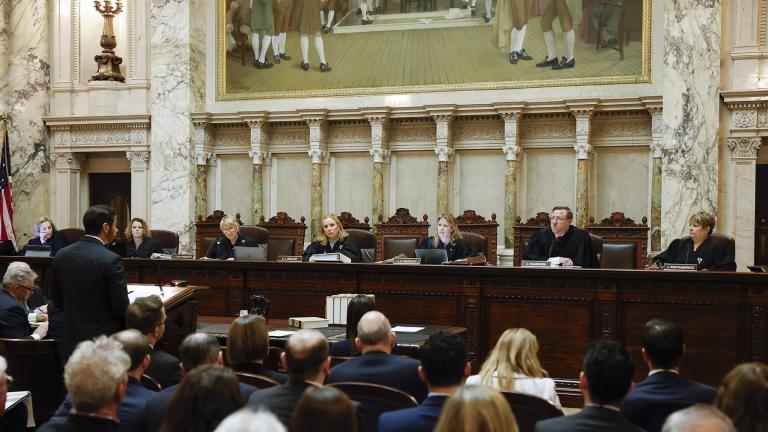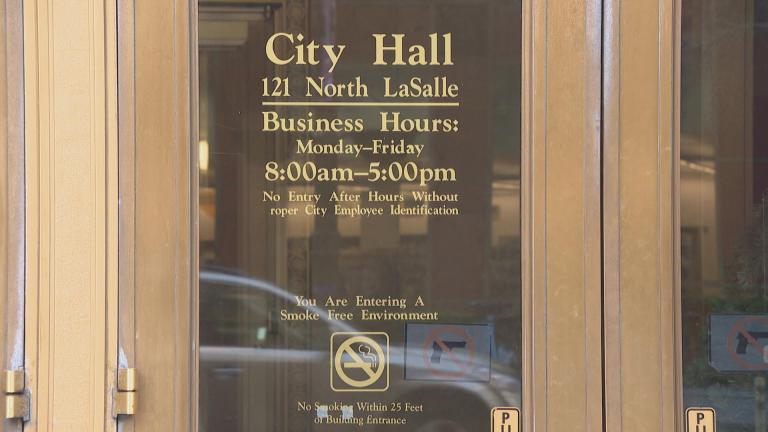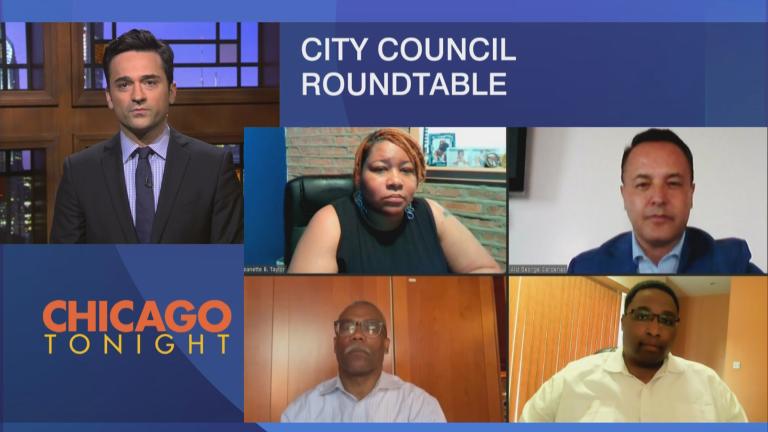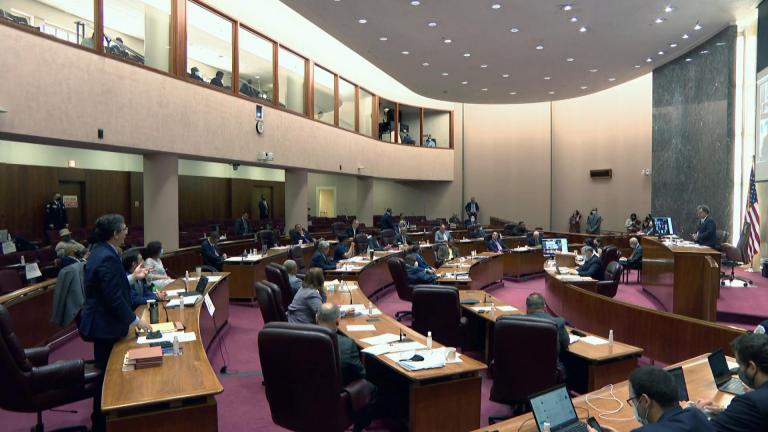 Redistricting: critics say it's a core issue that leads to corruption and bad public policy. Today, an effort to create an independent commission to redraw state legislative boundaries is getting a reboot. A similar grassroots effort tried and failed to get a referendum on last November's ballot to change the constitution and allow for an independent remap process. So why do backers believe this one will succeed?
Redistricting: critics say it's a core issue that leads to corruption and bad public policy. Today, an effort to create an independent commission to redraw state legislative boundaries is getting a reboot. A similar grassroots effort tried and failed to get a referendum on last November's ballot to change the constitution and allow for an independent remap process. So why do backers believe this one will succeed?
They say they’ve fixed the constitutional issues that squelched last year’s effort. And they have bigwig civic leaders behind this campaign – people like Bill Daley, Don Thompson, the former CEO of McDonald’s, Dennis Fitzsimmons, former CEO of the Tribune Company, and former Playboy CEO Christie Hefner. They say the goal is to change the once every 10-year process of redrawing legislative boundaries – a process that is controlled by the majority political party in Springfield, resulting in a jigsaw puzzle-type map that favors the incumbent – and put it in the hands of a nonpartisan commission.
“There is an inherent conflict of interest when legislators draw the districts they run in,” Hefner said. “To replace that system with a nonpartisan, strict, transparent system is good for government and good for voters.”
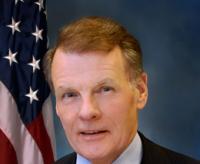 The renewed effort would need to get nearly 300,000 valid signatures to put an amendment before voters on the next election ballot. After that, it has to survive challenges to its legality. During the last cycle, the challenge was brought by House Speaker Mike Madigan’s top attorney – Mike Kasper, who concurrently challenged the term limits amendment backed by Gov. Bruce Rauner. Cook County Circuit Court Judge Mary Mikva threw both amendments out, but said that, with changes, a remap amendment could one day pass constitutional muster.
The renewed effort would need to get nearly 300,000 valid signatures to put an amendment before voters on the next election ballot. After that, it has to survive challenges to its legality. During the last cycle, the challenge was brought by House Speaker Mike Madigan’s top attorney – Mike Kasper, who concurrently challenged the term limits amendment backed by Gov. Bruce Rauner. Cook County Circuit Court Judge Mary Mikva threw both amendments out, but said that, with changes, a remap amendment could one day pass constitutional muster.
Specifically, the old amendment was not allowed because it mandated that anyone serving on the 11-member commission to redraw maps would be barred from running for political office for the next 10 years. The supporters say this time, that requirement is gone.
“There was a lot of extraneous language attached to the 2014 amendment,” says Patrick Brady, a Republican attorney who is working on the Fair Maps Amendment. “So what we did was streamline it. There is less for the Supreme Court to hang on to and say, ‘for this reason, we’re throwing it out.’”
But the field organizer for last year’s remap effort sent out a letter to volunteers saying he would not work with this new campaign because he felt it was too business-like. And one of the election lawyers for last year’s effort – Michael Dorf – says there are still too many legal issues for this to be successful.
“What the proponents of the amendment are trying to do is make this totally nonpartisan. What they should be doing is making it bipartisan,” Dorf said. “It can be bipartisan, Republicans and Democrats should both choose the members. I think that solves all the constitutional problems. The way they have it, making it nonpartisan, creates too many restrictions. It’s everything that Judge Mikva said they can’t do.”
 There’s also been concern expressed among some that Fair Maps is nothing more than a Republican front group backed by Gov. Rauner to attempt to win back the general assembly for the GOP. That’s a charge that noted progressive Hefner disputed.
There’s also been concern expressed among some that Fair Maps is nothing more than a Republican front group backed by Gov. Rauner to attempt to win back the general assembly for the GOP. That’s a charge that noted progressive Hefner disputed.
“This effort started under a democratic governor,” she said. “It’s really important to recognize that this improvement of the system is a reform that will benefit everybody.”
Meanwhile, Gov. Rauner in Springfield said he supports the new effort, saying of the current process:
“It diminishes our democracy, it takes away from two party democracy, both parties are guilty of it. I'm a strong believer that we should have redistricting reform. It takes partisan politics as much out of it as possible and allows voters real choice and real competition in general elections.”

